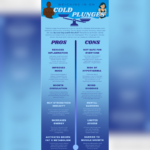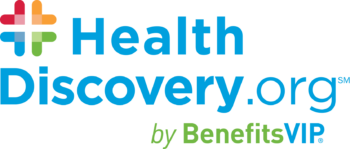Summer is giving way to autumn and with that shift in light and weather, some may struggle with their mental health more than usual. Whether you suffer from seasonal affective disorder or another depressive condition, the brain-gut connection is real. Your brain and gut communicate to each other and what you eat plays a crucial role in not just your physical but emotional health.
In other words, the food you consume can and does affect your mood. Recent studies suggest that the risk of depression is 25 to 30 percent lower for those who eat a Mediterranean or traditional Japanese diet rather than the Western diet of most Americans. This dramatic difference comes down to a diet rich with all the nutrients your brain needs to thrive but first:
Drink Your Water
When you’re emotionally low you tend to neglect yourself in small ways that can have a ripple effect on overall health. Dehydration is one of those small things. Did you know the brain is 80% water? Water is so crucial to its healthy function that a 1% decrease in water can drop overall brain function by 5%. This depletion flows through your entire body, making you more susceptible to headaches, fatigue and stress. None of which is good for your emotional well-being.
This is not to suggest that drinking water will make you less depressed. Mental health is a complex issue and there is no size fits all solution for addressing it. However, if you’re trying to manage depressive symptoms and self-care feels absolutely exhausting as you battle hopelessness and decreased energy, start by sipping some water. It can be your first step to improving emotional health.
Appetite and Apathy
Depression affects how you feel, think, act and perceive the world around you. One of the ways this can manifest is in your appetite. Whether your struggle is eating nothing or eating anything, it can be difficult to focus on healthy food options. But eating foods that are rich in nutrients such as fatty acids and essential vitamins and minerals is key to good brain function.
To help your brain be its best, you should eat a varied selection of foods that provide the following important nutrients:
Vitamin C – strawberries, oranges, lemons, limes, pineapples and grapefruits are all fruits rich in this important nutrient. But it’s not just fruits: broccoli, kale, red cabbage and cauliflower are all nutrient-dense options for vitamin C. One orange provides the required daily dose making it an obvious and easy choice if you feel overwhelmed about how to start eating healthier.
- Vitamin D – salmon, cod, shrimp, eggs, fortified milk, and yogurt all contain vitamin D which has neuroprotective properties to support brain cell activity amongst other important body functions. Some studies have linked vitamin D deficiency to fatigue and depression making this nutrient even more important to overall health. If cooking feels like too much effort, start with drinking milk and eating yogurt.
- B vitamins – red meat, fish, eggs, leafy green vegetables and whole grains are all good sources of the 8 essential B vitamins that keep your body at its best. B vitamins help turn our food into energy for crucial functions in the body. If you are deficient in any of the B vitamins, your body will be less efficient at getting the energy it needs. Nuts can be a great way to fulfill some of your B vitamin needs. Dry-roasted almonds and peanuts are excellent sources for B2 (riboflavin) and B3 (niacin) respectively.
- Omega-3 fatty acids – salmon, trout, tuna, beans, walnuts and broccoli all provide this crucial brain health nutrient. The brain is 60% fat and over half of that fat is comprised of omega-3 fatty acids. Omega-3 fatty acids are necessary to building brain and nerve cells. These fats are crucial components for learning and memory. A 5 ounce can of albacore tuna on top of a salad is an easy way to incorporate omega-3s into your diet.
Start slow and simple. It can be hard to think objectively about yourself and that’s okay. Change will take time and focus. Focus you can improve with one glass of water, then another as you take recovery one day at a time. Food will not and should not replace the medications and therapeutic methods that will help you cope with your depressive symptoms. But food can be medicine that helps you heal your body while you work on your mind.
BrainReference, “What Percent of the Brain is Water?”
Cleveland Clinic, “17 Foods That Are High in Vitamin C”
Harvard Health, “Nutritional psychiatry: Your brain on food”
Healthline, “Common Symptoms of Vitamin D Deficiency and How to Treat Them”
Healthline, “Healthy Eating for Depression”














